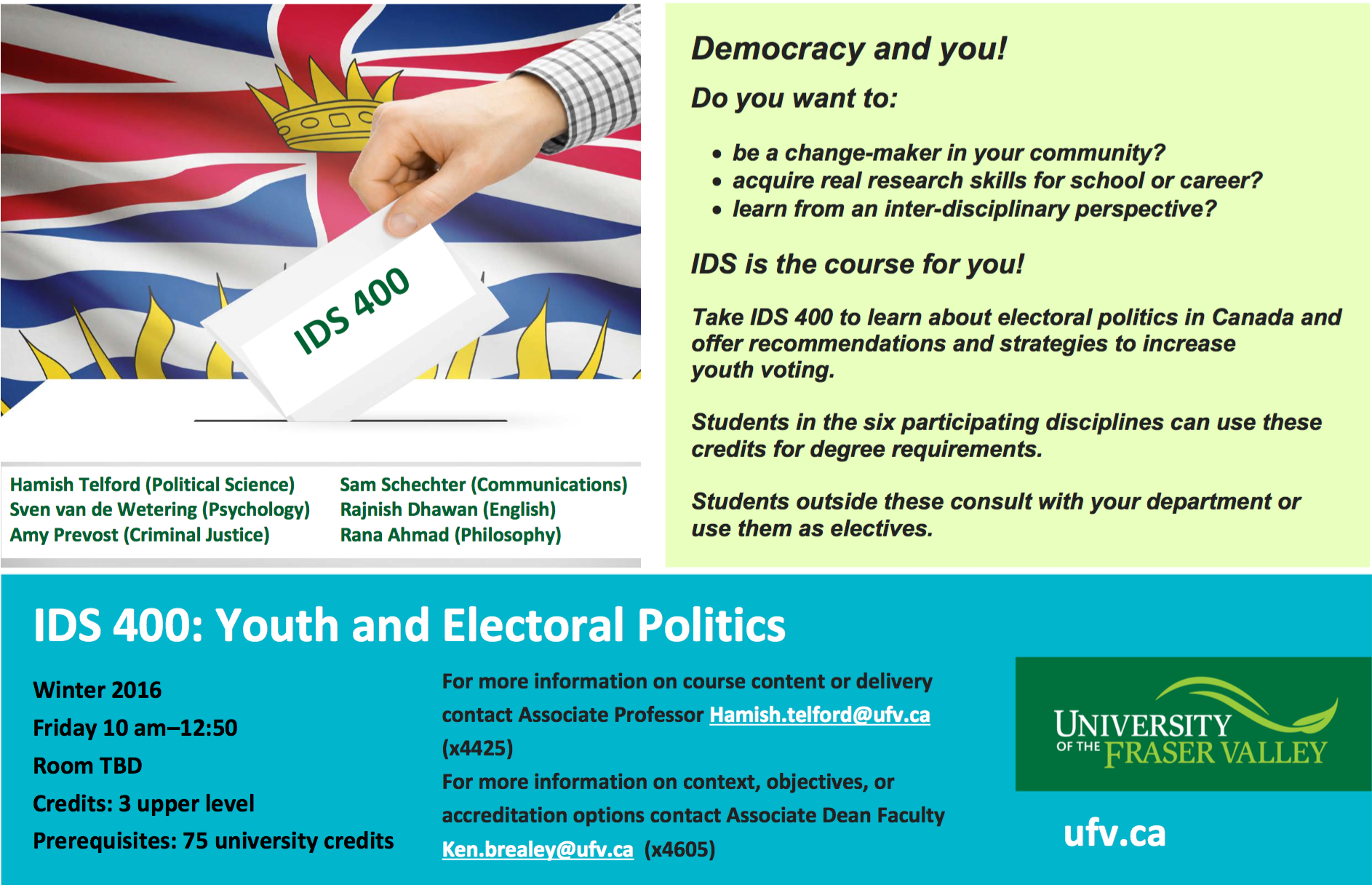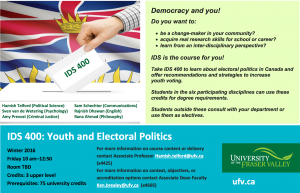When a new national sensation sweeps through the collective consciousness of a generation, everything that unifies that generation seems to instantly make sense.
When Barack Obama pledged to bring hope to America, musicians, celebrities, and even well-funded admirers threw their voices, music, reputations, and money into the wave of enthusiasm and the logic of the campaign’s successful outcome seemed to speak for itself.
What happens in an election campaign, though, when there’s no new sensation? What happens when an election is just about the boring old future of our country and the unimportant state of our global environment and how our still-vital-but-not-sexy government programs and services are to be managed?
With a few ups-and-downs along the way, voter turnout has been declining in Canada since the 1950s, with people under the age of 30 being much less likely to vote than those over the age of 50.
But elections don’t just matter when there’s an Obama-sized wave sweeping across a nation.
Every election affects the future of our country, the state of our global environment, the laws by which we are governed, and the services governments do or don’t offer to assist their citizens.
Numerous efforts have been made to engage young voters and encourage them to vote, such as Rock the Vote, and the inclusion of youth wings in political parties, but they have experienced mixed results in terms of increasing voter turnout among young people.
Elections BC, the non-partisan government agency responsible for organizing elections in British Columbia includes voter education and outreach as part of its mandate. In an effort to help them develop new strategies for increasing voter turnout among youth, Elections BC has asked for help from UFV.
In response, UFV has created a new, interdisciplinary course: IDS 400: Youth in Electoral Politics. This course is designed to bring a group of university students together to provide strategic advice and insight to Elections BC that will help them achieve their goals.
This course is an exciting and interesting new educational model for UFV. It is being co-taught by six instructors from six different departments and it puts students in charge of the course’s outcomes. The work of the course isn’t just for the classroom; it’s for the benefit of Elections BC and the tens of thousands of young voters that they’re looking to engage in the provincial election scheduled for May 9, 2017.
This is completely different from every other course offered at UFV.
To quote the official course outline:
This course represents an important new partnership for UFV as a growing institution and a unique learning opportunity for students.
This course is something completely different and I am excited to be a part of it.
If you’re interested, I hope you join me.
Sam Schechter is an instructor in UFV’s Communications department and one of six faculty members collaboratively teaching IDS 400: Youth and Electoral Politics.


